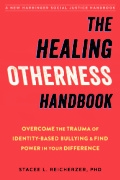It was the end of a business travel death march, a Saturday evening in DC on a plane that was too small in weather that was too stormy. As we sat waiting on the runway for the storm to pass, a baby girl who was several rows behind me began crying, then screaming. I anticipated the irritated looks and accusing sighs that were being hurled at her parents as the hour wore on. In a moment of lucidity, I realized that not long ago, I might have been one of those nonverbal dart throwers. Something had changed in me, though; and on this day, I felt real empathy for the screaming baby and her parents.
In trying to pinpoint what was different now and why, I realized that my journey had brought me some key encounter moments, the significance of which I was only now recognizing.
I’d been vacationing a couple of years ago with a young mom whose daughters were 7 months and 2 years old, even though the girls weren’t with us. It was my friend’s first time away from her youngest, in fact, and we were enjoying a decidedly adult trip to Walt Disney World complete with wines, indulgent meals…that sort of thing. While munching on overpriced but delicious pastries in the French pavilion, a child at a nearby table experienced one of those classic WDW meltdowns that occur when the fun and stimulation of the day maxes a kiddo out. He screamed. I cringed and cut eyes toward the table. My friend called me on it.
“You know, if we’re going to be friends in our present lives, you’re going to have to understand that this is what kids do. I promise that if we were here with my kids, one of them would experience that at some point. I’d like to think that you would be understanding of it when it happens.”
That moment brought a couple of things to my awareness. For as much as I’d written and spoken about the experience of being made to feel ‘less than’ or Other for people who lived in gender and sexual identity margins, racial and ethnic margins, income margins, physical health and physical feature margins…I’d never considered that I might be guilty of Othering my friend as a parent. I didn’t want her or any parent to feel that I was shaming them. If there’s one thing I understand about life, it’s this: shame sucks. I therefore can’t knowingly engage in shaming behaviors.
The interesting thing about this is that I’ve never thought about myself as a particularly oppressive person. Yet, as my friend made me realize in that moment over those French Disney pastries, this was exactly what I was doing to not only those flustered parents and their child, but to her, by extension. I became aware that because I love my friend and because I aspire to a path of compassion for my existence, I now needed to rethink how I engage people around me. Apologizing profusely and acknowledging my mistake, we moved on from the incident and had a great rest of our vacation.
My empathy moved deeper during the work I was doing on an article for Family Circle in which I talked to a mom whose little girl has autism and is sometimes overwhelmed and starts screaming in the middle of Target; and another mother who’s so attuned to strangers’ reactions that she tries to shield the visibility of her daughter who has cerebral palsy when the family eats at restaurants because the child’s motor functions sometimes cause her to drop and spit food on herself.
As I learned the stories of the cold stares and clueless advice that these women had heard and experienced, I knew that if I had ever engaged in any sort of demeaning behavior toward parents in similar situations, I could never do so again. In fact, it opened my ideas to more opportunities for helping them. I began asking myself what I needed to do, who I needed to be.
One of the fascinating things about being human is that as even as we gain the ability to recognize and testify to the story of our own pain, we are often blind to the methods by which we inflict pain on others. It’s easy to see and feel empathy toward those who are most like us, but another thing entirely to see the pain, and our role in creating it, for those whose lives seem to reflect adult choices that differ from our own.
My ability to recognize that someone who at first appears quite different from me has in fact the same needs I do frees me to respond in a much more loving way; for a thing that I share with all homo sapiens is a desire to feel cared about in my most vulnerable moments. To parents of a screaming baby who are faced with the very difficult task of trying to calm her down while also feeling very self-conscious about the discomfort of strangers, I can now truly feel compassion.
If there’s one thing I know to do as a positive source of change, it’s to tell the story of my own transformation in a hope that it will spark something similar for others.

